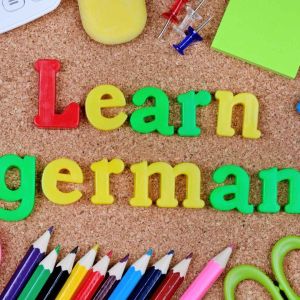A1 Level German Words
In our blog post, you can get a solid start on your language learning journey by learning the most basic German words and their meanings at the A1 level!
A1 Level German Vocabulary
A1 Level German Vocabulary is the first step for anyone starting to learn German. With these frequently used words, you can create simple sentences, introduce yourself, and express your basic needs. The stronger your vocabulary is when learning a new language, the easier it becomes to communicate.
We've compiled the most frequently needed words as part of our A1 Level German Vocabulary. Every word you learn will take you one step further, helping you become more fluent with practice. If you're ready, let's explore the most important German words you need to know at the A1 level!
What is the A1 Level German?
The first step for beginners learning German is the A1 level. This level, determined by the Common European Framework of Reference for Languages (CEFR), represents the ability to use a language at its most basic level. A student at the A1 level can understand simple sentences frequently used in daily life, introduce themselves, and express their basic needs.
Level A1 typically covers simple communication situations encountered in daily life, such as greetings, introducing oneself, shopping, ordering food, and asking directions. At this level, students begin to develop basic vocabulary, can form short sentences using simple grammatical structures, and can understand others when spoken slowly.
The aim of level A1 is to develop survival-level communication skills. This means that complex conversations or the ability to understand long texts are not expected at this level. Instead, the goal is to express basic needs and ask and understand simple questions.
Level A1 is a starting point in the German learning journey. Students who complete this level can advance to more advanced levels, improving their language skills and making their communication more fluent.
Level A1 German Words List
● Hello → Hello
● Tschüss → Goodbye
● Good Morning → Good Morning
● Good Evening → Good Evening
● What is your name? → What is your name?
● Ich heiße … → My name is …
● Danke → Thank you
● Bitte → Please / You're welcome
● Ja → Yes
● Nein → No
● Vielleicht → Maybe
● Entschuldigung → Excuse me
● Hilfe → Help
● Wasser → Water
● Brot → Bread
● Kaffee → Coffee
● Eins → One
● Zwei → Two
● Drei → Three
● Vier → Four
● Fünf → Five
● Zehn → Ten
● Zwanzig → Twenty
● Hundert → One Hundred
● Heute → Today
● Morgen → Tomorrow
● Gestern → Yesterday
● Monday → Monday
● Dienstag → Tuesday
● Midtwoch → Wednesday
● Donnerstag → Thursday
● Freitag → Friday
● Samstag → Saturday
● Sunntag → Sunday
● sein → to be
● haben → to have
● gehen → to go
● kommen → to come
● sprechen → to speak
● lernen → to learn
● machen → to do
● essen → to eat
● trinken → to drink
A1 German Topics
1. Introduction and Introducing Yourself
● Greetings and farewell expressions
● Asking and giving your name, age, nationality, and profession
● Basic personal information (address, phone number, family)
2. Alphabet and Pronunciation
● German alphabet
● Pronouncing letters
● Basic pronunciation rules
3. Numbers and Time
● Numbers from 0 to 100
● Hours
● Days, months, seasons
● Telling the date
4. Daily Life Expressions
● Shopping (asking prices, requesting products)
● Ordering at a cafe/restaurant
● Asking for directions
● Telling the weather
5. Grammar Basics
● Definite and indefinite articles (der, die, das / ein, eine)
● Plural forms of nouns
● Personal pronouns (ich, du, er, sie, es, wir, ihr, sie)
● Verbs sein and haben
● Conjugations of regular verbs
● Interrogatives (W-Fragen: Wo, Was, Wer, Wie, Wann…)
● Negative sentences (nicht, kein)
● Introduction to modal verbs (können, müssen, etc.)
6. Family and Social Environment
● Family Members
● Expressions related to friendship and social relationships
7. Home and City Life
● Household Items
● Important places in the city (Post Office, Bank, Market, Bahnhof, etc.)
8. Food and Drinks
● Basic food and drink vocabulary
● Ordering patterns at a restaurant
9. Health and Daily Needs
● Simple health problems (I have a headache, I don't feel well, etc.)
● Basic communication at the doctor
The Best Online English Course: Learn German with Sculin.com!
Take your first step in learning German by reading our A1 Level German Vocabulary blog post. Learn German easily and quickly.


 Sculin Kids
Sculin Kids 